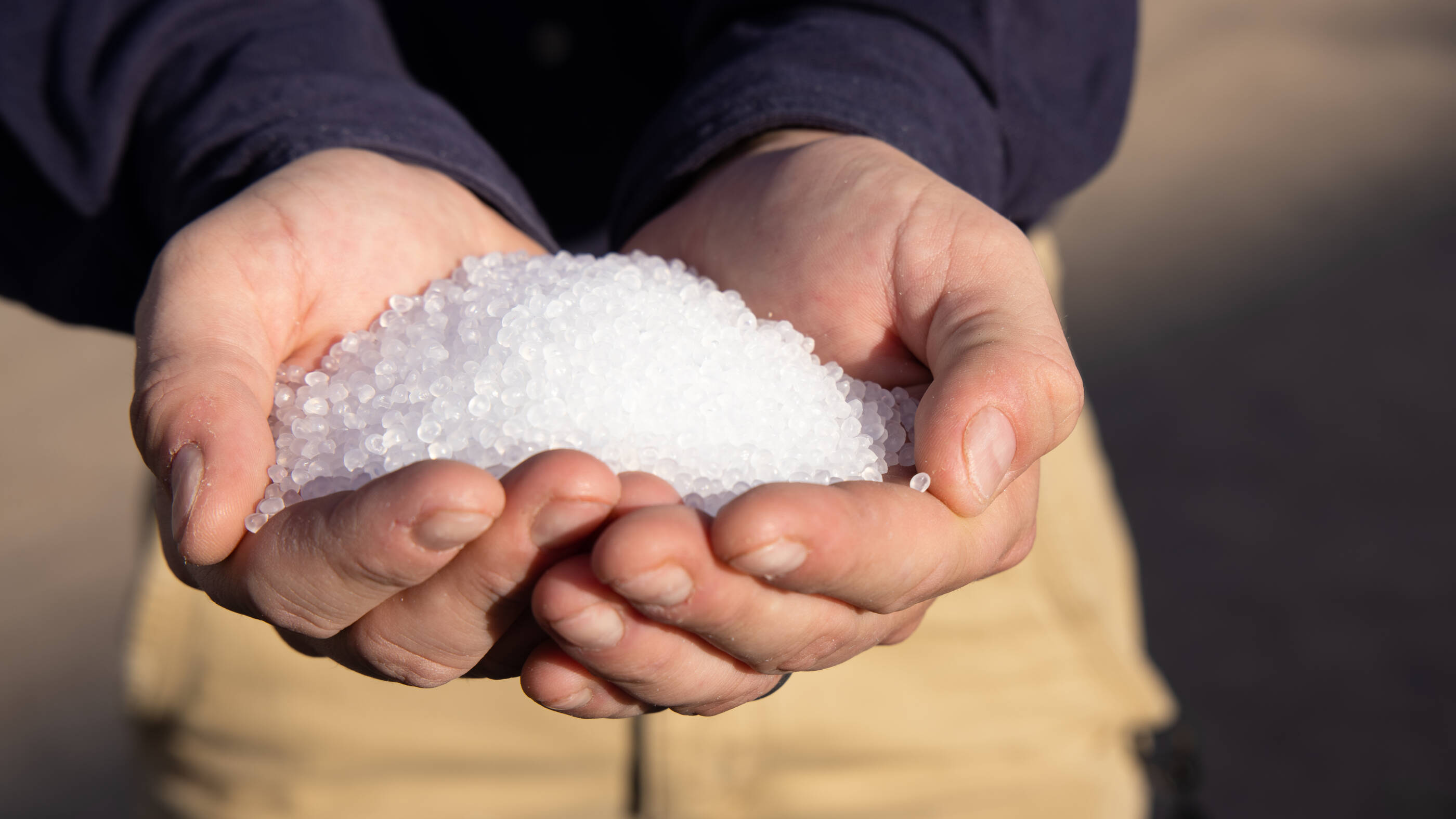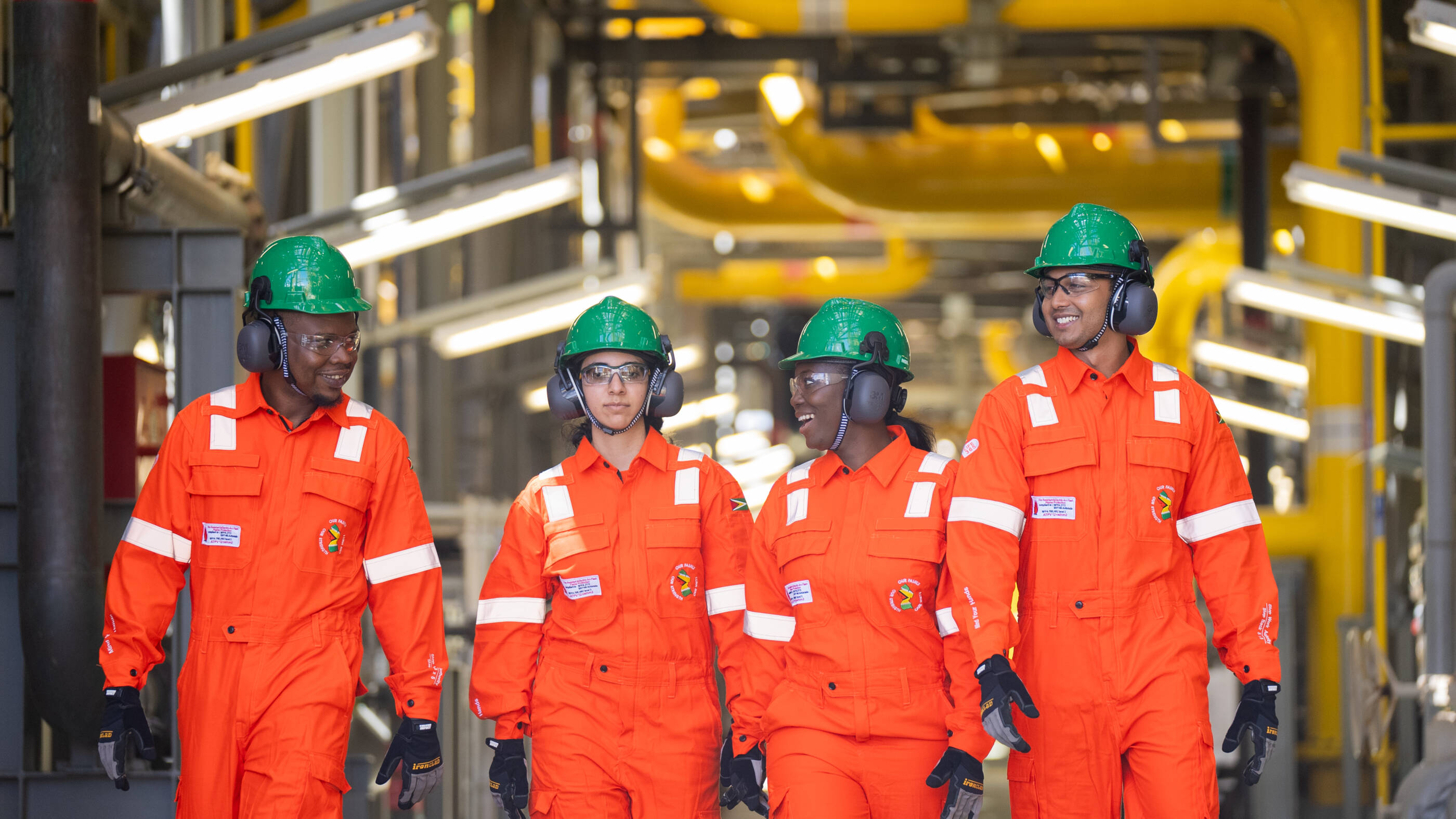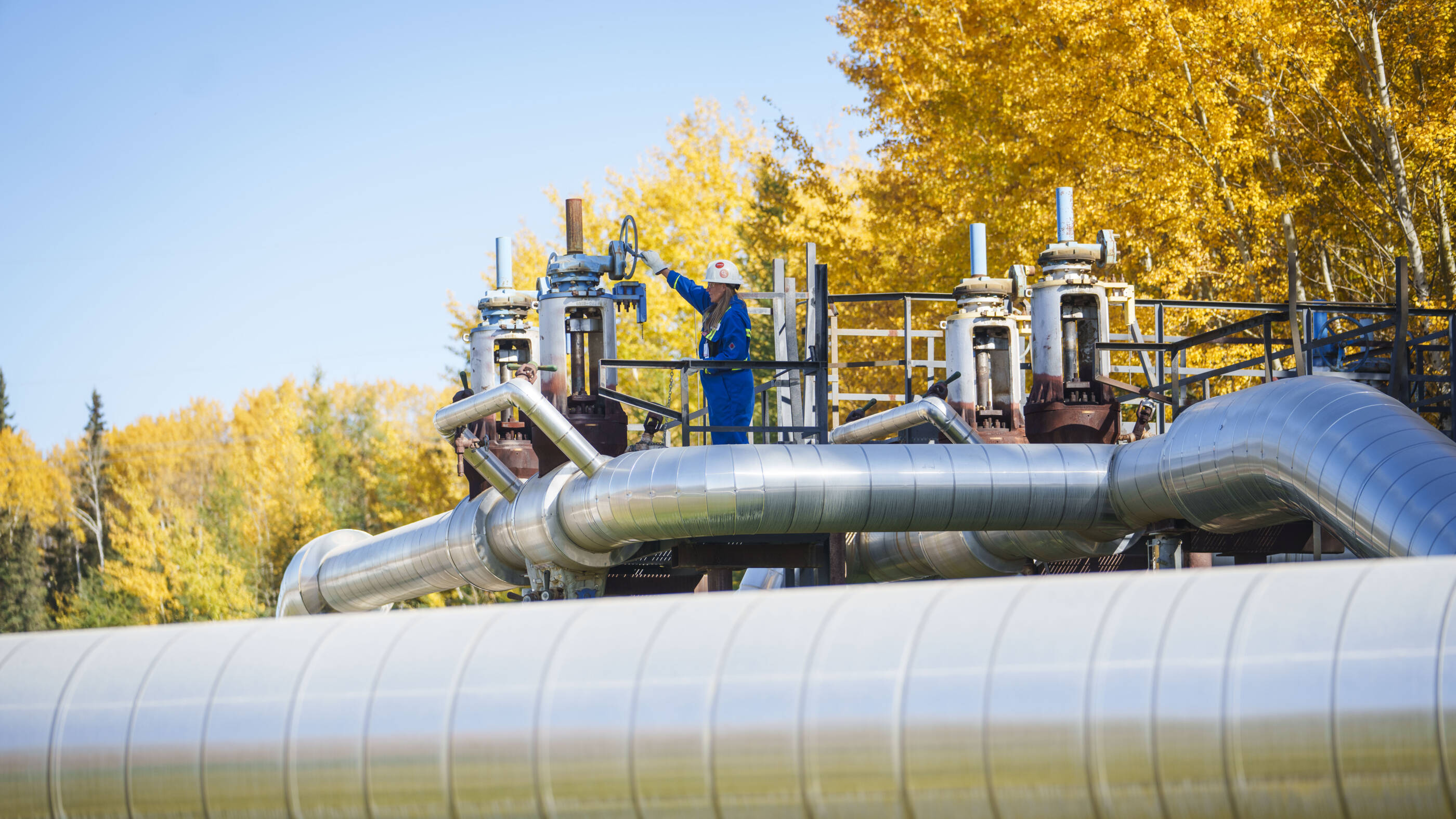selected item
Advanced recycling and the future of plastics
ExxonMobil is a leader in high-performance plastics. They are one of our many product solutions that enhance modern life and enable lower-emission technologies, such as lightweight and fuel-efficient vehicles, solar panels, wind turbines, and energy-saving building insulation.
Step into any hospital, kitchen, daycare center, science lab, airplane, or automobile, and you will find abundant examples of plastic products. The plastics found in mobile phones, computers, vehicles, packaging and many other applications provide countless benefits. During the pandemic, plastics helped save lives in the form of medical equipment, syringes and protective gear for health care workers.
Plastics also play an important role in achieving many of the United Nations’ Sustainable Development Goals, including addressing climate change. For example, on a life-cycle basis, plastic packaging has 54% lower greenhouse gas emissions versus alternative materials as a group, including aluminum, glass and paper.1 The International Energy Agency’s Net Zero Emissions by 2050 scenario expects demand for chemicals to grow more than 30% versus 2020, and plastics make up approximately half of that total volume.
At the same time, we share concerns regarding plastic waste in the environment. We also believe it’s a challenge that can be addressed. That’s why we were instrumental in launching the Alliance to End Plastic Waste, which now includes more than 90 member companies, project partners, allies, and supporters who are aiming to provide $1.5 billion to create innovative solutions around the world.
We are uniquely positioned with our scale, integration and technology to significantly expand advanced recycling capacity and help broaden the range of plastics that society recycles, which is pivotal for improving overall plastic recycling rates. Our advanced recycling technology enables us to create and capture value from plastic waste. It complements traditional mechanical recycling by using chemical processes to break down hard-to-recycle plastics at the molecular level into raw materials that can be used to make new, virgin-quality plastics and other valuable products.
Last year at our facility in Baytown, Texas, we used advanced recycling technology to process almost 4 million pounds of plastic waste. That’s equivalent to recycling 360 million grocery bags. We also announced plans to build our first large-scale facility for advanced recycling in Baytown, which is expected to start operations near the end of this year and will be among the largest advanced recycling facilities in North America. We are collaborating on an advanced recycling project in France, and are assessing additional opportunities in the Netherlands, the U.S. Gulf Coast, Canada and Singapore. By year end 2026, we plan to build about 500,000 metric tons, or 1 billion pounds, of annual advanced recycling capacity.
This is significant capacity that can be expanded further with supportive policies and enhancements in aggregation and sorting of plastic waste. To help address this challenge we formed the joint venture Cyclyx International, together with Agilyx Corp., which is focused on developing innovative solutions for aggregating and pre-processing large volumes of plastic waste that can be recycled into valuable products.
At our Annual Meeting in May, our shareholders will be asked to vote on a proposal asking our company to produce a report on plastics that is based on the idea that use of plastic will decline in the future and our investments, including our new advanced recycling projects, will be at risk. The proponents rely on assumptions that relatively little plastic can be recycled and that plastics can be replaced at scale. These assumptions are out of step with a number of independent experts. For example, the IEA, in its Net Zero Emissions by 2050 scenario, assumes 55% of the world’s plastic waste will be recycled by 2050, thanks to advanced recycling and other improvements. In addition, the proponent’s assertion that plastics can be replaced at scale doesn’t consider the feasibility, cost, performance, or other environmental impacts of such large-scale plastic-replacement efforts. According to a study conducted by Trucost, replacing plastics in packaging and consumer products with alternative materials could actually increase greenhouse gas emissions, energy use and waste. Ultimately, this proposal distracts from the significant progress we are making and fails to make a compelling case for support.
Credible third-party estimates expect plastic use to increase in future years due to the many life-enhancing benefits plastics provide, including helping society achieve net-zero ambitions and the UN’s Sustainable Development Goals. Based on these expectations and our investments to expand advanced recycling efforts, we believe producing another report on a highly unlikely scenario is an unnecessary use of resources. We urge our shareholders to vote against this proposal and support the role of plastic in a sustainable and circular economic future.
1 Per April 2018 report of Franklin Associates; US; Max Decomp.; Figure 4-1; Impacts as defined in Chapter 4.7: Global Warming Potential (GWP) results, and Indexed to the alternatives as a group (including steel; aluminum; glass; paper-based packaging; fiber-based textiles; and wood). Source: https://www.americanchemistry.com/content/download/7885/file/Life-Cycle-Impacts-of-Plastic-Packaging-Compared-to-Substitutes-in-the-United-States-and-Canada.pdf
Explore more

Expanding the plastics life cycle
3 min read
•
Integrating sustainability into what we do
5 min read
•
Working with suppliers

Enhancing process safety
3 min read
•
Improving air quality
2 min read
•
